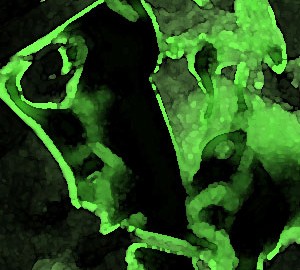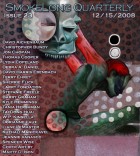Dorianne, the moment in the story with the cigarette like a kiss imprinted itself on my mind. and stuck. When I read your poetry the same thing happens—I attach to your tiniest details. Though nothing is “spoken” between them, something is happening between them. Can you talk about that?
I also love that cigarette kiss. It seals the pact between the girls. I didn’t plan it, it just happened. I was so inside these two that I saw the kiss and it surprised me, just as it would if I’d been right there.
Many of your poems also capture moments between good same sex friends. Can you tell us about your interest in writing about these connections?
I like writing about friendship between women, especially young women, without men, or men in the background but not there with them. Women forge strong bonds. They encourage and incite each other. They are completely natural with each other. They aren’t trying to look good, smell good or be smart. They are just being.
The rhythm in this flash fiction piece is so strong, very like a healthy young person’s heart beat. The movement is forward, like the car’s engine. Are you conscious of finding rhythm as it happens?
I’m a poet so rhythm is essential for me. It’s another motor that has to be on, pushing me forward. I lose interest otherwise. The story, the images, the characters, they just don’t move for me unless there’s a rhythm beneath them making them dance off the page. That’s one of the most exciting aspects of writing, when you actually enter the moment and come alive inside it, when you’ve stopped thinking and the mind is delighted to be given free reign. That’s when you’re riding the language, and the mind is just humming along on its own, saying whatever it wants however it wants.
Have you ever tried my hand at a novel? I’m asking, perhaps naively, since your poems are so narrative and filled with characters and conversation.
Yes. I once decided I would write a novel and dove right in! The main character was a guy named Keaton—and I liked him, but I just couldn’t get him to do anything! He stayed in the house most of the time. His buddy would come over and try to roust him a bit, but Keaton just kind of wound down during each encounter and finally the other character stopped coming around. He just sat around and looked at things, like the pattern in the rug, or stared up at the holes in the ceiling tiles and tried to count them, would lose his place and have to start over, fixed dinner, watered plants, stared at a spill or a stain on the wall and imagined it as a bike or a palm tree. Keaton was my foray. He was interesting to me, but boring to a reader.
Has teaching influenced your life as an artist? Can you tell us anything about the way you work with students?
I love my students—I love seeing the broad strides my undergraduates at NCSU have made. They are amazing! They memorize poems by other poets, established contemporary American poets, Yusef Kommunyakaa, Sharon Olds, Carolyn Forche, Doug Anderson, Li-Young Lee…. Those moments, when they stand up there, the poem moving through them, are the best for me. The classroom is so quiet and we’re all caught up in the poem, and all so proud of the student reciting it, most often flawlessly. And they are writing wonderful, wild, open, memorable poems. I sometimes think I was meant to be a teacher. It’s not as if I have grand storehouses of knowledge. I have tiny drawers filled with mostly trinkets of information and odd poetic tidbits of quirk. What I do find I’m good at is inspiring others to write, to take their writing seriously, and to go as deeply and fearlessly as they can into inner space.
Many of my former students have books out right now. Matthew Dickman’s All-American Poems, winner of APR’s Honickman Prize, is a stunner. Michelle Bitting’s Good Friday Kiss, winner of the De Novo First Book Prize is fabulous. And Michael McGriff’s Dismantling the Hills, winner of the Pitt Poetry Prize, is terrific. I’ve been teaching these first books to my college students as part of a class called First Books and they love them.



 The core workshop of SmokeLong Fitness is all in writing, so you can take part from anywhere at anytime. We are excited about creating a supportive, consistent and structured environment for flash writers to work on their craft in a community. We are thrilled and proud to say that our workshop participants have won, placed, or been listed in every major flash competition. Community works.
The core workshop of SmokeLong Fitness is all in writing, so you can take part from anywhere at anytime. We are excited about creating a supportive, consistent and structured environment for flash writers to work on their craft in a community. We are thrilled and proud to say that our workshop participants have won, placed, or been listed in every major flash competition. Community works.